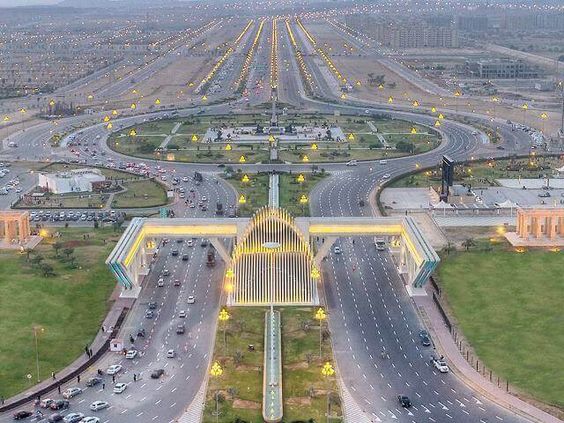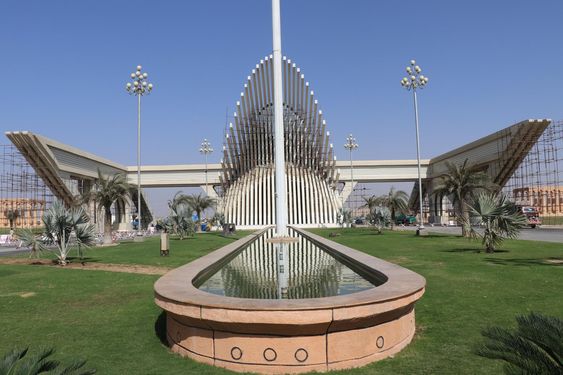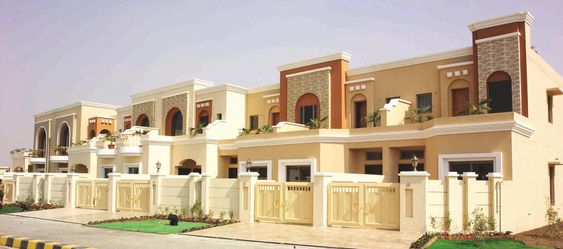
Bahria Town, self-declared Asia’s largest real estate developer, is so powerful in Pakistan that thousands of acres of land is allocated to it at sub-market value in Karachi by uprooting the indigenous population living there.
When Bahria Town is fined for its illegal activities abroad; the entire value of the fine to the tune of Rs.50 billion are returned to it through the ex-Prime Minister Imran Khan in the previous government using the offices of the Supreme Court of Pakistan.
By Foqia Sadiq Khan
Pakistan’s Tax to GDP ratio is abysmally low. It was below 9% in the FY 2021-2022 and projected at 9.5% for the current financial year. Compare this with India’s Tax to GDP ratio of 12%, Philippines’ 14%, Turkey’s 17.6%, Latin American and Caribbean countries of 13.4%, and European Union of 19.5%. Pakistan needs to think out of the box to raise its very low Tax to GDP ratio and one place to start off is to effectively tax the real estate sector in Pakistan.
Given the fact that rural poverty is higher than urban poverty, there is not much scope to tax the agriculture sector.
The reason why the policy makers need to tax the real estate is because the formal manufacturing sector is already overtaxed. Successive civilian and military governments have failed to effectively tax the informal small industry and businesses. All governments including the present one cannot effectively tax traders. The agriculture sector provides direct employment to 38.5% of Pakistan’s population, contributes over 19% to GDP and almost 65-70% of the population depends on the agriculture sector for its livelihoods. Given the fact that rural poverty is higher than urban poverty, there is not much scope to tax the agriculture sector.
Real estate in Pakistan was valued at approximately 700 billion dollars some years ago and its value might have gone up higher by now. According to Bilal Gilani of Gallup Poll, the website advertising property buy and sale and rentals across Pakistan zameen.com earned revenue of Rs.12 billion last year alone. This shows you how real estate is the most privileged sector to absorb the liquidity flow in Pakistan. A recent World Bank study estimates that almost 80% of the wealth accumulated by citizens in Pakistan by the age of 60 to 65 consists of residential buildings.
Total taxpayers are 2.88 million in Pakistan and out of which only 0.7 million are active taxpayers. In a population of over 220 million; it is approximately 1% of the population. There is a dire need to widen the tax net.
Real estate is hugely under taxed. According to some sources, capital gains tax is only applicable if a citizen has bought and sold a property within the last 4 years. Property tax is hugely undervalued as study after study shows it. There is deep connivance of the tax officials at the lower level with the citizens to arbitrarily lower the property tax valuation. Commercial properties are often shown as residential buildings and rented premises as owner occupied to lower the property tax. FBR revised the property tax values in major urban areas of Pakistan some months ago to make them reflect the market value; however, it was again revised downward to some degree after the intervention of powerful real estate sector agents and representatives.
Taxation efforts need major overhaul in Pakistan. Total taxpayers are 2.88 million in Pakistan and out of which only 0.7 million are active taxpayers. In a population of over 220 million; it is approximately 1% of the population. There is a dire need to widen the tax net. Tax returns need to be simplified, so that anyone even with basic literacy can easily file the tax return. Right now even those with PhDs cannot file their tax returns and need tax consultants to do it for them. In a low literacy rate country like Pakistan, it is a huge disadvantage. Even honest people who want to pay tax get on the wrong side of the stick just because they do not know how the system works.

I recently had a bad personal experience. This year for the first time for my 2022 tax return, the Federal Board of Revenue (FBR) made the withholding tax deductions done by banks available on the IRIS system on the FBR website. When I checked my withholding tax folder on my IRIS; withholding tax entries for over 80% of my investment in a private bank in Islamabad in term deposits were missing from May 2018 onwards till now. I pointed it out both to my private bank and FBR in writing immediately about it on 19th and 20th September 2022. The private bank sent me a very non-serious response. After much follow-up over the phone with FBR, PRAL/FBR informed me in writing on 5thOctober that they cannot do anything about the missing entries of my withholding tax and the respective bank has to make corrections. I forwarded the FBR/PRAL’s response back to the private bank, told them to make the corrections and provide me the challan numbers as evidence that they have indeed submitted all the withholding tax they have been deducting from me for the past over 4 years. I have no idea why the private bank has been deducting the withholding tax for my investment month after month, year after year since May 2018 onwards and not been submitting it to FBR and is unwilling to provide me evidence that it has been submitting my withholding tax and unwilling to commit that it will now make corrections, if it failed to do so in the past? These are the kind of unseen and unexplainable problems that taxpayers face in Pakistan that need to be addressed and the system reformed.

The real reason why real estate is not effectively taxed in Pakistan is because all sorts of civilian and military elite have parked their money in real estate and they increase the worth of their investments by creating immense value through converting the semi-agricultural land on the peripheries of cities into urban housing schemes.
Coming back to effectively taxing the real estate sector; the simplest solution is that FBR should make capital gains tax compulsory for all property sales without any limit for years and have market determined rates available to it and heavy penalties announced for undervaluing the real estate while transacting. Everyone who is selling the property in Pakistan needs to be made liable to file for capital gains tax within 30 days after the exchange has taken place. FBR does not need to wait for the annual tax returns to collect capital gains tax. It should be collected within 30 days after the sale of property. Similarly, the property tax should be determined on the basis of market value in the urban areas. Connivance of the tax officials with the taxpayers of property tax payers must be effectively addressed, so that arbitrary powers are not used to cause damage to the exchequer.
The real reason why real estate is not effectively taxed in Pakistan is because all sorts of civilian and military elite have parked their money in real estate and they increase the worth of their investments by creating immense value through converting the semi-agricultural land on the peripheries of cities into urban housing schemes. Sensible economists have for years been advocating to redesign Pakistan’s cities in such a way that there is vertical growth in flats rather than horizontal spread and cities should be accessible to city dwellers on foot or through public transport instead of spending scarce foreign exchange on fuel to transport individual city dwellers to far flung horizontal housing schemes through cars. However, no decision maker is listening to these sensible economists simply because the real estate lobby is extremely powerful in Pakistan and it protects itself from being slashed at the cost of public interest.
Bahria Town, self-declared Asia’s largest real estate developer, is so powerful in Pakistan that thousands of acres of land is allocated to it at sub-market value in Karachi by uprooting the indigenous population living there. When Bahria Town is fined for its illegal activities abroad; the entire value of the fine to the tune of Rs.50 billion are returned to it through the ex-Prime Minister Imran Khan in the previous government using the offices of the Supreme Court of Pakistan. Now, the National Accountability Bureau (NAB) has launched an inquiry into this extreme collusion of powerful vested interests enriching themselves by defrauding public money.
Other than earning the much needed revenue for the government of Pakistan; another crucial reason to tax the real estate in Pakistan for policy makers should be to give the right kind of incentives to those who want to manufacture, run a business, and create products that can be exported and earn much needed foreign exchange for the country. Right now, the incentive structure of investment is so skewed that anyone can park their money in real estate that is unproductive and provides amazing returns without doing much. To increase productivity and exports in the country; it is imperative that real estate is effectively taxed. Would the powerful entrenched elite allow it is the big question!
______________________
The writer is an Islamabad-based social scientist. Email: fskcolumns@gmail.com
Twitter: @FoqiaSadiqKhan